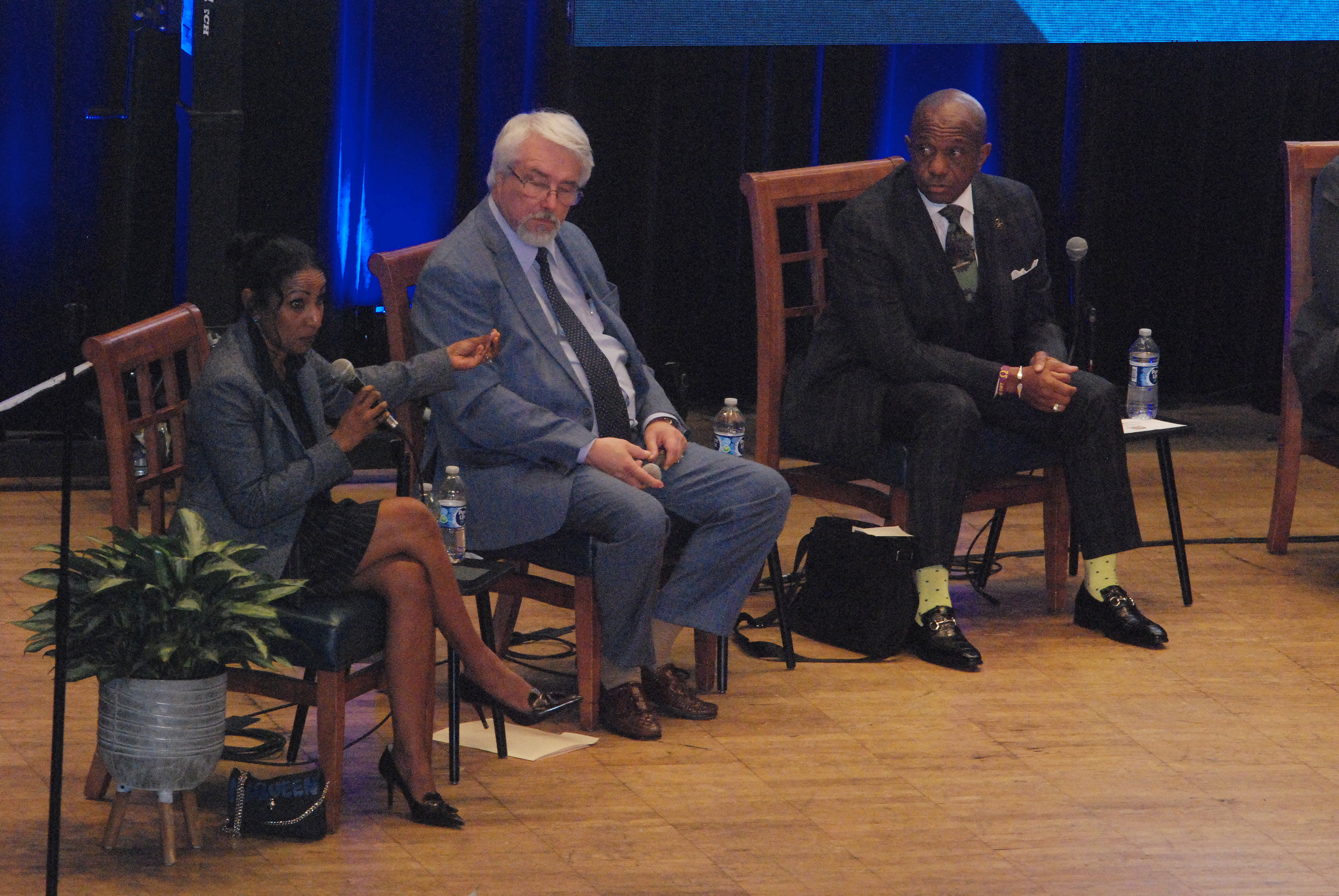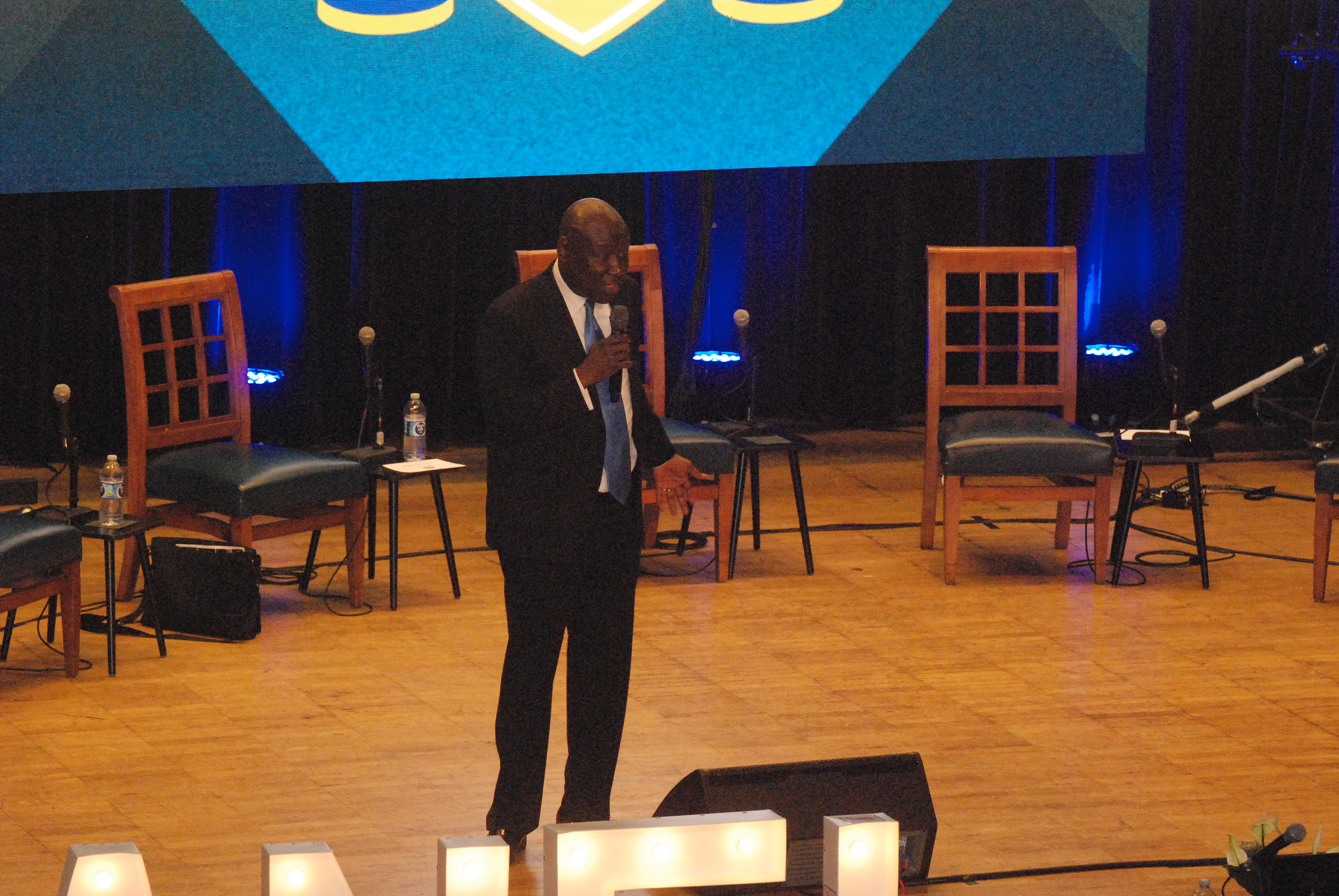Can bail be reformed? Livingstone panel explores that question
Published 12:08 am Saturday, March 25, 2023
SALISBURY — Famed civil rights attorney Ben Crump was in Salisbury on Thursday at Livingstone College, along with various justice officials and professionals who sat down in Varick Auditorium to discuss the implications of bail reform.
Among those involved in the panel discussion was Melanie Reid, a law professor from Tennessee who teaches at Lincoln Memorial University’s Duncan School of Law. Two Mecklenburg County officials — Sheriff Gary McFadden and District Attorney Spencer Merriweather — also joined triangle-area defense attorney Carleena Deonanan, North Carolina-based bondsman Dallas McClain and Houston-area judge Maria Jackson.
Former S.C. State Rep. Bakari Sellers and author Eric Kowalczyk moderated the discussion.
The discussion of bonds took several turns, including addressing their necessity and efficacy. Deonanan pointed out that some bonds are different, and the discretion of judicial officials presents the possibility for problems.
“The issue I see most often is high bonds placed on people who don’t have the resources, in a punitive way,” Deonanan said.
The panel explained that two factors are considered when setting the bond for a defendant accused of a crime — the likelihood of them reappearing when it is time to come to court and the ability to keep the community safe.
“Ultimately, there are two questions one must decide,” Merriweather said. “Let’s move away from bail and use the term pre-trial conditions. We have complicated this by talking about price tags, but that question is simple, should this person be in, or should this person be out? This doesn’t have to be hard, but we have complicated it beyond recognition.”
However, those factors are largely subjective.
“As a judge, I would look at the offense,” Jackson said. “If there was a violent offender, I might hold them without bond to look out for the safety of the community.
“Innocent people are being killed because dangerous people are allowed to go free. Community safety is important when you are looking at the defendants with a propensity for dangerousness.”
Those items must be weighed on a case-by-case basis. As Reid indicated, a judge’s opinion can be misguided based on external factors out of their control.
“When judges use risk assessment, they have to be careful in understanding how that tool was created,” Reid said. “If there is over-policing in particular areas and situations where people have criminal arrest records that are being used to (set bail), that can be discrimination.”
The goal of bail reform is to ensure equal protection under the law for anyone accused of a crime. The Eighth Amendment to the U.S. Constitution says that excessive bail shall not be required, nor excessive fines imposed, nor cruel and unusual punishments inflicted.
However, with excessive fines levied against defendants in some cases, pre-trial detention can wade into cruel and unusual punishment territory.
“I walk into jail and see inmates visiting with family and talking to children through monitors,” Deonanan said. “As their lives are getting worse, they start looking at a plea.”
The defense attorney pointed out another little-known fact.
“Being in jail is not free,” Deonanan said. “Did anybody know that? You have to pay $40 a day to be in jail.”
Another constitutional amendment can be compromised through the process as well. The Sixth Amendment is supposed to guarantee defendants the right to a speedy and fair trial.
“I have seen someone held in county jail for years while they wait on a trial,” McClain said. “We are making some progress, but we are not moving people through the system fast enough. People deserve a speedy trial and to get their discovery in a timely manner.”






